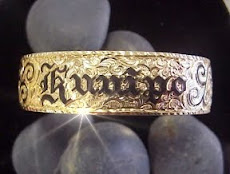With gold prices increasing, your jewelry is becoming more valuable. Below are ways to protect your Hawaiian jewelry.
Jewelry Protection
How safe is your jewelry? Where do you keep it when you're not wearing it? Is it really safe in your home?
Jewelry theft—a crime of opportunity
The majority of jewelry thefts occur when workers, guests, or friends are in your home, and your personal jewelry is visible or accessible for them to steal.
In addition, burglars are known to case neighborhoods looking for:
- uncut lawns,
- newspapers on doorsteps, and
- no cars parked in the driveway.
They look for signs that indicate you aren't there or you have been away for awhile. Some thieves even have the nerve to knock on your door to see if anyone is home.
Security for your jewelry and other valuables in your home is a matter of attitude. Realize that all neighborhoods are vulnerable to burglaries. Your home could be a target if a thief feels you have valuables worth stealing and there's easy access to your valuables. While having insurance for jewelry won't prevent jewelry theft, it certainly will make dealing with that lost engagement ring easier after the fact.
Burglary—often a daytime crime
Surprisingly, most burglaries occur during the day, not at night. Burglaries also are more frequent when doors and windows are unlocked, whether or not people are at home.
Think about this: How easy would it be for a burglar to slip into your home unnoticed and steal your valuables if you were occupied in another part of the house, outside in the garden, or mowing the lawn? It could only take a minute for jewelry theft to occur. Fortunately, it's easy to protect your jewelry with jewelry insurance.
Protect your jewelry by following these tips:
Protecting jewelry at home:
- Jewelry boxes and dresser drawers, as well as almost any other spot in bedrooms, are often the first places a thief will look for your valuables. Consider storing infrequently worn jewelry in a bank safe-deposit box. Choose a hiding place that is inconspicuous, yet convenient for you.
- Install good locks on your doors and windows and establish family procedures for locking them. When practical, keep your doors locked at all times, and always when you leave.
- If you have children who need quick entry, consider having them use a back door or a door that is routinely monitored.
- Make your house look lived in. Keep the lawn groomed and pick up your mail and newspapers daily.
- Find a secure spot for optimal jewelry protection, such as an immobile home safe or a safe-deposit box. If you don't have these, choose a secure hiding place in your home.
- Please call Jewelers Mutual Insurance toll-free at 888-884-2424 for great hiding places and other tips for protecting jewelry.
General tips for protecting your jewelry:
Jewelry damage is very common but, fortunately, protecting jewelry is easy with proper attention and care.
- If you bump or catch your jewelry, inspect it immediately for missing stones or damaged prongs. If you do have damaged jewelry, keep it in a safe place until you can take it to a jeweler for inspection and repair.
- Gloves commonly catch prongs on rings; take extra care when removing them so you don't damage or lose your engagement ring or other favorite piece.
- Never put jewelry in your pockets. Even pockets with zippers can be susceptible to opening.
- Prevent damaged jewelry by removing it before gardening, playing sports, swimming, or performing difficult chores around your home. Place it in a safe location.
- Don't set jewelry items on an open surface such as a sink, counter, or public area. They can be forgotten, lost, or even stolen.
Regular inspections are key to protecting jewelry
Have your jeweler inspect your jewelry on a regular basis. This is especially true for items you wear frequently. Small problems—like loose stones, worn or damaged prongs, and faulty clasps—often can be detected and repaired before they become bigger problems, like a lost diamond.
Since jewelry values periodically change, these inspections also allow your jeweler the opportunity to make sure your jewelry is properly valued for replacement purposes.
Don't forget jewelry insurance!
Finally, jewelry insurance can provide peace of mind and make it easy to replace a cherished piece if you experience jewelry damage or jewelry theft. Jewelers Mutual Insurance makes it easy to begin protecting jewelry with a policy and makes it hassle free if you ever need to file a jewelry insurance claim
Mahalo and aloha from Hawaii,
Colette, Designs 'N Gold of Hawaii





No comments:
Post a Comment